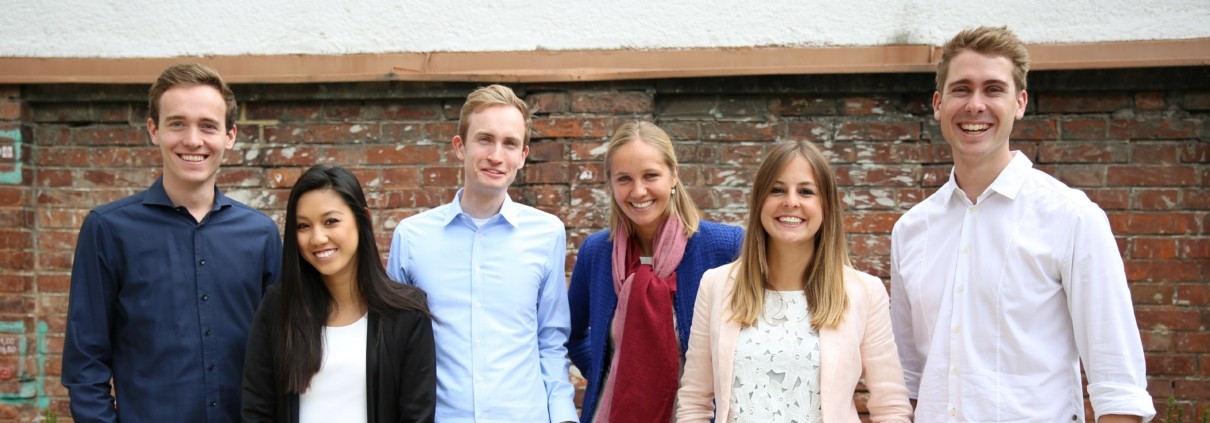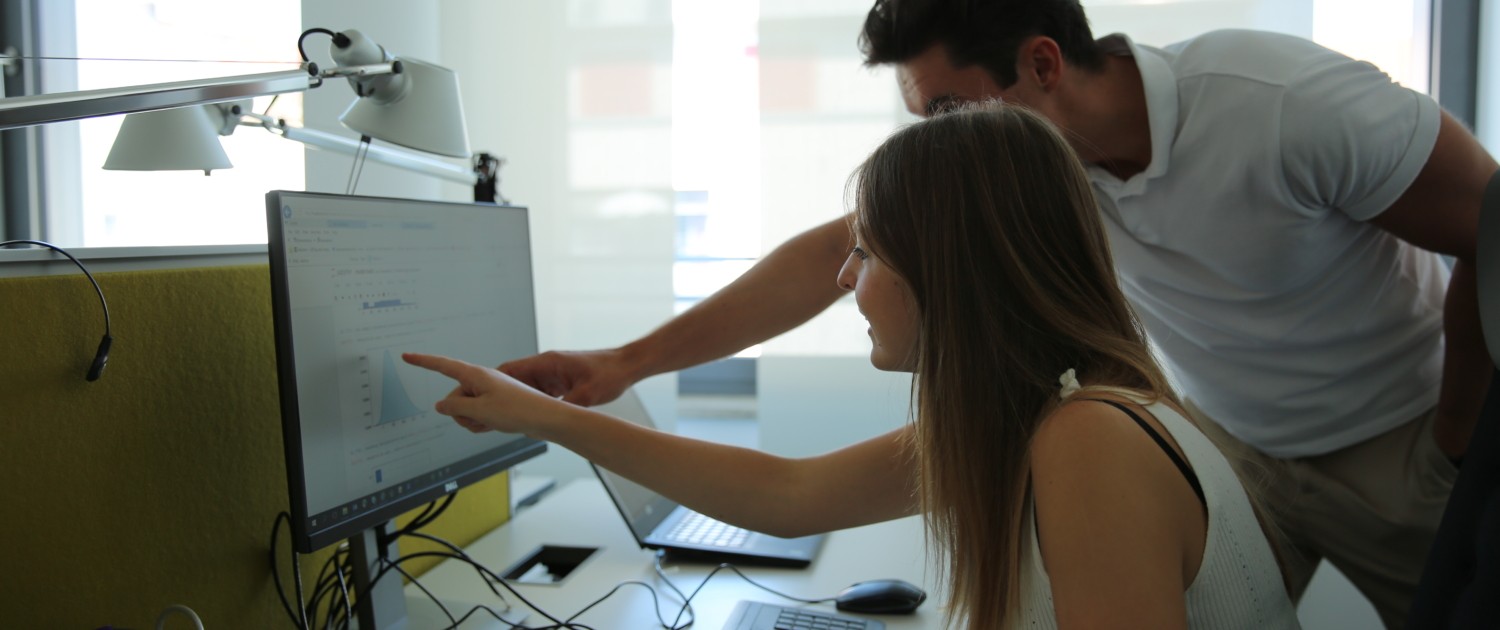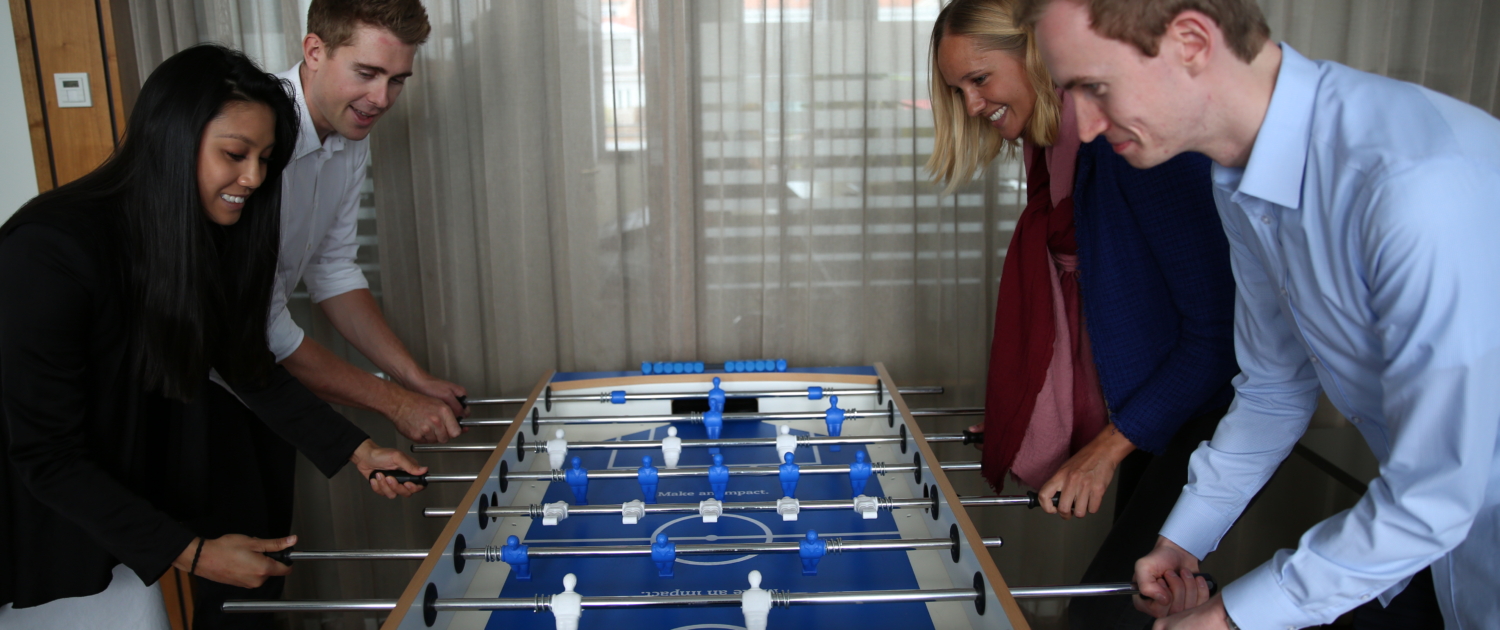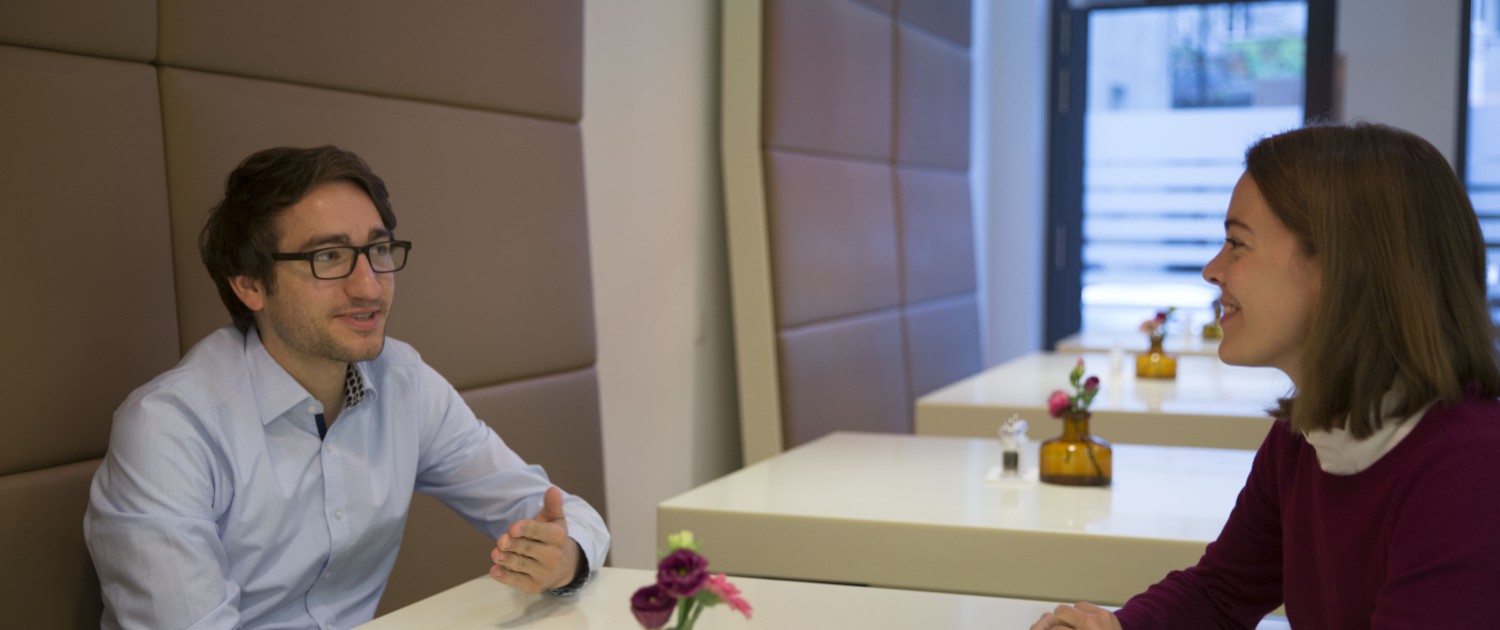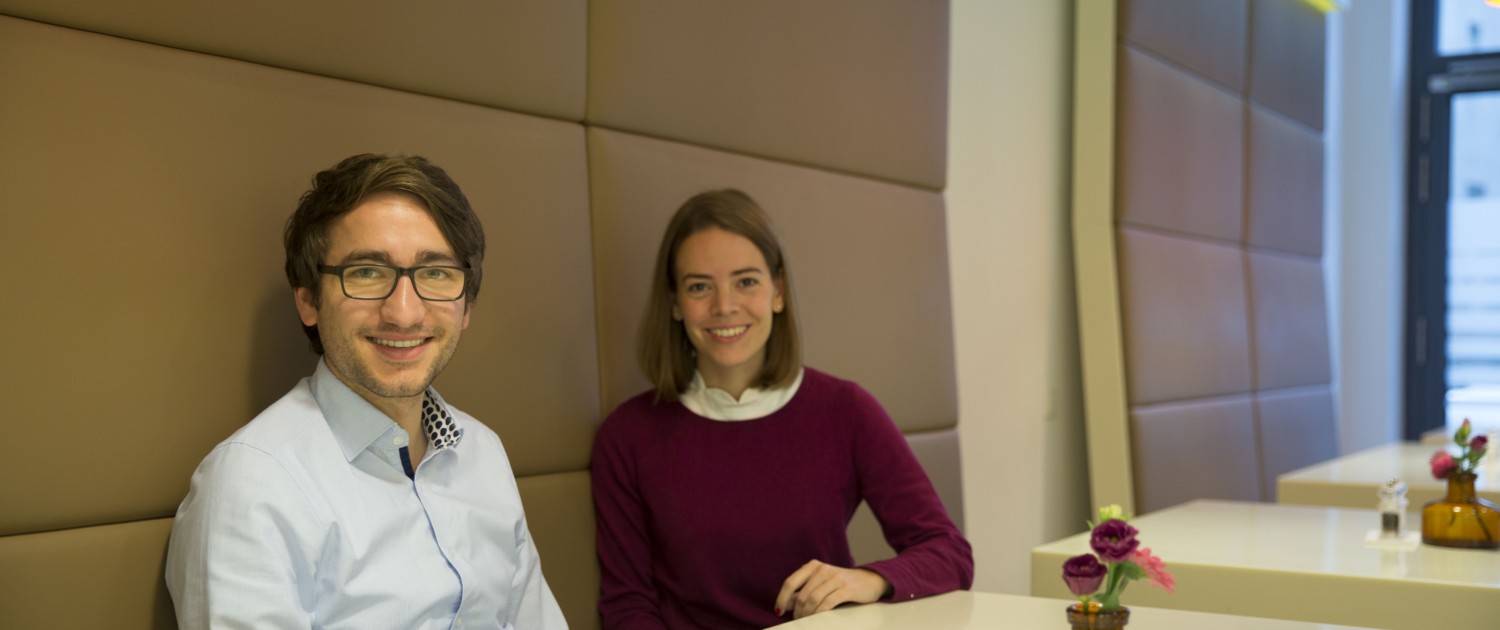OLIVER WYMAN
Oliver Wyman is a global leader in management consulting. With offices in 60 cities across 29 countries, Oliver Wyman combines deep industry knowledge with specialized expertise in strategy, operations, risk management, and organization transformation. The firm has more than 5,000 professionals around the world, that work with clients to optimize their business, improve their operations and risk profile, and accelerate their organizational performance to seize the most attractive opportunities. Oliver Wyman is a wholly owned subsidiary of Marsh & McLennan Companies [NYSE: MMC].
Interview with Anna and Markus, Oliver Wyman Consultants
If you were to describe Oliver Wyman with 3 words, which words would they be?
Markus: 1) Global strategy consultancy, ranked 4th in the world
2) Entrepreneurial Spirit
Anna: … and 3) Excellent corporate culture
Since 1984, when Oliver Wyman was founded, the company has been a strong international management consultancy. How does this influence your work?
Markus: Projects are staffed worldwide, for example I spent more than a year in the Middle East. My first project brought me to Kuwait for almost half a year. Since I liked working in a different region and culture, I directly expressed my interest in another project in the Middle East. This way I was able to work another half year in Saudi Arabia. But even with a project in Germany, we work together internationally at all levels – for example, we can send a document to the graphics department in Mexico in the evening, and because of the time difference, our colleagues work on it overnight – really practical.
What distinguishes you from other international management consulting companies?
Anna: No matter in which country you go to an Oliver Wyman office, you immediately feel the energy that comes from people who do meaningful work and have a goal in mind. Good ideas prevail and everyone can get involved. All our colleagues should have the feeling that they can be themselves at work. We focus on our culture of diversity and integration – be it the diversity of ethnic and social backgrounds, experiences or ways of thinking. Oliver Wyman’s spirit cannot be found in any other company.
What is the working atmosphere at Oliver Wyman like?
Anna: Smart, motivated and likeable colleagues, with whom I also like to spend time on Friday after work – whether at a “happy hour” or privately.
What does an ordinary working week at Oliver Wyman look like?
Markus: The great thing about our job is that we always work together in new environments on exciting topics. As a rule, we travel to the customer on Monday mornings, work there during the week and take the opportunity to coordinate closely, and on Thursday evenings we come home again. On Fridays we work from our Munich office.
An important part of the studies at the TUM School of Management consists of a technical specialization. How can our students bring this knowledge to you?
Anna: I have already done several projects in the field of mechanical and plant engineering – my specialization in mechanical engineering was a good basis for this. In one project, for example, it was an advantage that I had attended a lecture on material flow at the time and knew what an AGV was.
It is said that the actual learning begins after graduation, how can we imagine starting at Oliver Wyman?
Markus: Right at the start, a two-week training course is scheduled, during which newcomers from all over Europe and the Middle East learn or refresh the basics – such as slide writing, Excel, customer meetings, etc. – and get to know each other. In my opinion, the most learning is done “on the job”. In addition, there are regular training sessions over the course of a career, such as the “Experienced Consultant Toolkit”, which is due about one year after joining the company.
What tips can you give a student for the recruiting process?
Anna: Both the professional and the personal impression are important. Apart from a good preparation for case studies, it helped me a lot to go through my CV and to consider at each stage what I found easy/difficult, what my role was, etc. – and to discuss the whole thing again with my parents or good friends afterwards.
Thank you for the interesting insight into your day-to-day work!
P.S.: Click on the logo to visit Oliver Wyman’s website
Source for images: Oliver Wyman

